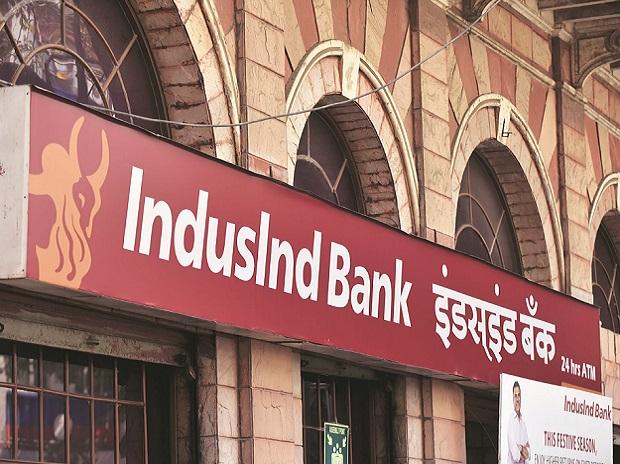IndusInd Bank Reports 17% Higher Q3 Profits
Source and Citation: Article published by ET Bureau in Economic Times on January 19, 2024.
Analysis for a Layman
IndusInd Bank, a private sector lender, reported a 17% year-on-year rise in net profit for the December 2022 quarter, reaching Rs 2,301 crore. The growth was driven by a robust 24% increase in retail loans and maintained asset quality. Retail loans expanded by 24%, fueled by demand in various categories such as vehicles, microfinance, and personal loans.
The bank’s management expressed confidence in sustaining over 18-22% overall loan growth in the next fiscal year, primarily led by consumption-oriented retail credit. Asset quality remained stable, with the gross non-performing assets ratio declining from 2.06% to 1.92%. The bank attributed this improvement to provisioning buffers. Additionally, higher loan yields and a focus on low-cost deposits helped maintain net interest margins at 4.29%.
These results showcase the resilience of the retail-focused bank despite challenges from higher interest rates and liquidity tightening by the Reserve Bank of India. The growth momentum appears sustainable, although risks associated with a global recession require monitoring.

Impact on Retail Investors
For retail investors in IndusInd Bank, the positive earnings report provides reassurance regarding the bank’s growth strategy, profitability, and asset quality. The focus on retail loans indicates stability compared to banks with a more corporate-heavy balance sheet. Continuous monitoring of execution against guidance is essential, particularly in target segments like real estate and microfinance. The bank’s digital transformation initiatives to improve customer coverage should align with industry standards.
Impact on Industries
In the context of India’s banking industry, IndusInd Bank’s performance suggests that private banks are actively supporting credit flow across productive sectors, outpacing risk-averse state-owned lenders. This is crucial for sustaining economic momentum. The uptick in retail demand reflects consumer resilience and decent job stability. For niche lenders, focusing on retail, MSME, and agriculture loans can offer avenues for increased penetration. The moderation of deposit rates eases margin pressures if implemented judiciously. However, external risks such as oil prices need monitoring for potential slippages.
Long Term Benefits & Negatives
Over the long term, IndusInd Bank is well-positioned to achieve sustained growth, riding on India’s private consumption demand. Retail loan uptrends offer opportunities for faster expansion into under-served segments. With global banks exiting India, nimble local lenders like IndusInd can capture market share. The bank’s investments in digital access over the coming decade will aid convenience and expand reach beyond branch networks. However, intermittent capital infusion requirements may be needed for funding growth. Competition from consolidated PSU banks, as well as strategic fintech partnerships, will be essential for augmenting product diversity, process innovations, and data analytics capabilities.
Short Term Positives & Negatives
In the near term, IndusInd Bank has rebounded well from pandemic-related setbacks, with momentum in retail loan growth and stable deposits. The management’s positive outlook for FY2024 indicates a steady-state inflection point. However, global economic trajectories need monitoring, especially regarding corporate loans’ asset quality in the face of potential recessionary pressures. Retaining low-cost deposits is crucial to defend margins, and any sharp rise in credit costs should be closely watched. Overall, the bank seems well-prepared for the current environment.
Potential Gainers and Losers from IndusInd Bank’s Q3 Performance
Indian Companies Likely to Gain:
- IndusInd Bank: Strong retail loan growth, stable asset quality, and improving credit costs signal a positive outlook. Potential for increased investor confidence and positive market sentiment.
- Other Retail-Focused Private Banks: Companies like HDFC Bank, ICICI Bank, and Kotak Mahindra Bank could benefit from the overall positive sentiment on retail loan growth in the Indian market.
- Companies in Sectors Mentioned for Growth: Real estate, agriculture, education, and logistics companies mentioned by IndusInd CEO as seeing potential growth could experience increased investor interest and positive sentiment.
- Microfinance Providers: Stable asset quality in microfinance for IndusInd suggests continued growth potential for the sector. Companies like Bandhan Bank and Ujjivan Financial Services could benefit from positive sentiment.
Indian Companies Potentially Less Impacted:
- Public Sector Banks: While benefiting from the overall positive economic outlook, PSBs might not see the same level of retail loan growth as private banks like IndusInd. Market sentiment likely neutral.
- Companies Reliant on Corporate Loans: IndusInd’s focus on retail could mean limited growth for companies dependent on corporate loans. Neutral market sentiment unless they demonstrate other growth drivers.
Global Companies Likely to Gain:
- Global Asset Management Firms: Improved financial performance of IndusInd and overall optimism in the Indian banking sector could attract further foreign investment, benefiting global asset managers.
- Global Financial Technology Companies: Increased focus on digital banking initiatives by IndusInd could create opportunities for collaboration with global fintech companies. Positive sentiment if partnerships materialize.
Global Companies Potentially Less Impacted:
- International Banks with Existing India Operations: Existing players like HSBC and Citibank might face increased competition from IndusInd in the retail space, but overall impact likely minimal.
Important Note:
This analysis is based on the provided information and current market conditions. It is not financial advice and investors should conduct their own due diligence before making any investment decisions.